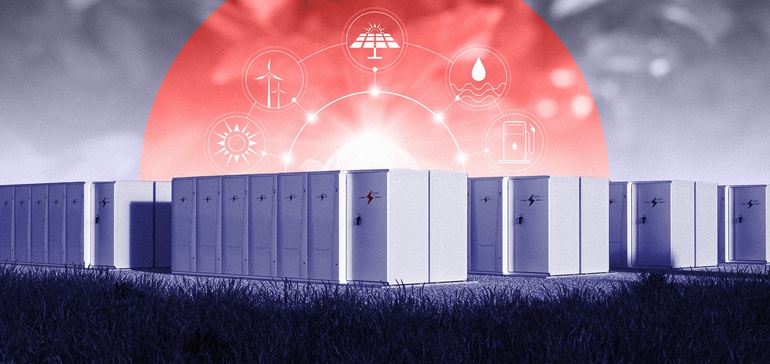
Dive Brief:
- Lithium-ion battery recycling firm Li-Cycle announced a $100 million investment from Koch Investments Group, an investment partner subsidiary of fossil fuel giant Koch Industries.
- The investment, made through a convertible note, will support Toronto-based Li-Cycle’s expansion in North America, Europe and Asia. The investment could also include opportunities to partner on engineering and construction services, optimized process design and new commercial facilities.
- Separately, Retriev Technologies and Heritage Battery Recycling announced a combination of their battery management and recycling businesses this week. The combined company, they say, creates the largest lithium-ion battery recycler in North America, which will operate under the Retriev brand.
Dive Insight:
The investment in Li-Cycle comes as Koch Strategic Platforms (KSP), one of six subsidiaries of Koch Investments Group, has put substantial funding into the battery business. In July, KSP announced a $100 million investment in zinc-based battery storage maker Eos Energy Enterprises and has also invested in next-gen battery cell producer FREYR and e-mobility company REE Automotive.
That’s despite the parent company’s long history in the oil and gas and refining industries. Charles Koch, the Kansas-based conglomerate’s chief executive and chairman, is also well-known for his public opposition to government regulations and climate change legislation. KSP was created last year as part of a goal to invest about $3 billion in 2021 in "new economy" industries, including energy transformation, automation, healthcare and computing.
Li-Cycle co-founder and chief executive officer Ajay Kochhar said that regardless of Koch Industries’ reputation and history, the chance to partner with the investment group was a "huge opportunity." Besides the direct investment, Kochhar said Li-Cycle will benefit from the operational expertise that Koch can bring as the company looks to expand its facilities. KES can also help to construct, test and ship modular facilities for future expansions.
"What was compelling to us is that this opens up additional capacity to deploy … around the world," he said. Scaling up operations, he added, is "not something engineering firms always do well," so the business and operational design expertise will be beneficial.
Li-Cycle responds to the broad concerns about critical mineral shortages for electric vehicle and energy storage batteries. The company’s facilities extract cobalt, nickel, lithium and other materials from used batteries, defective material or scrap from other manufacturing facilities, then recycle it into usable material. Through a hub-and-spoke model, Li-Cycle’s central recycling facility is in Rochester, N.Y., with smaller facilities in Ontario, one under construction in Arizona and another recently announced to be built in Alabama.
A key part of that strategy, Kochhar said, is to "get close to where the customer is" and avoid transporting materials and finished products across continents. Li-Cycle seeks to collect materials near manufacturing bases and then reuse them domestically to deliver "a better economic profile and a much better environmental profile."
In a May report and statement, International Energy Agency executive director Fatih Birol warned of a "looming mismatch between the world’s strengthened climate ambitions and the availability of critical minerals that are essential to realizing those ambitions." A June report from a White House task force on supply chains warned that demand for lithium could grow by more than 4,000% by 2040 because of the growth in battery use, with a significant chunk of manufacturing occurring in China.
The squeeze could especially hurt the energy storage market. A new report from IHS Markit found that growth in electric vehicle adoption could constrain the supply of stationary lithium-ion batteries, even as the storage market grows substantially in the next decade. Recycling used batteries and materials, experts say, could help close that gap, even with the long lifespan of storage products.
The combination between Heritage and Retriev also adds to the growing battery recycling industry, with links to the vehicle industry. Retriev already has recycling and sorting facilities in Ohio and British Columbia, which will work with Heritage’s existing collection and transportation network.
"Over 7 million electric vehicles were sold in the last decade, and as production of new models ramp up and older models near end of life, the need for recycling and reuse solutions has never been greater," said Heritage Environmental Services CEO Jeff Laborsky in a press release.
"cycle" - Google News
October 07, 2021 at 10:00PM
https://ift.tt/3uOLhMv
Battery recycling firm Li-Cycle nets $100 million investment from Koch Industries subsidiary - Utility Dive
"cycle" - Google News
https://ift.tt/32MWqxP
https://ift.tt/3b0YXrX
Bagikan Berita Ini















0 Response to "Battery recycling firm Li-Cycle nets $100 million investment from Koch Industries subsidiary - Utility Dive"
Post a Comment